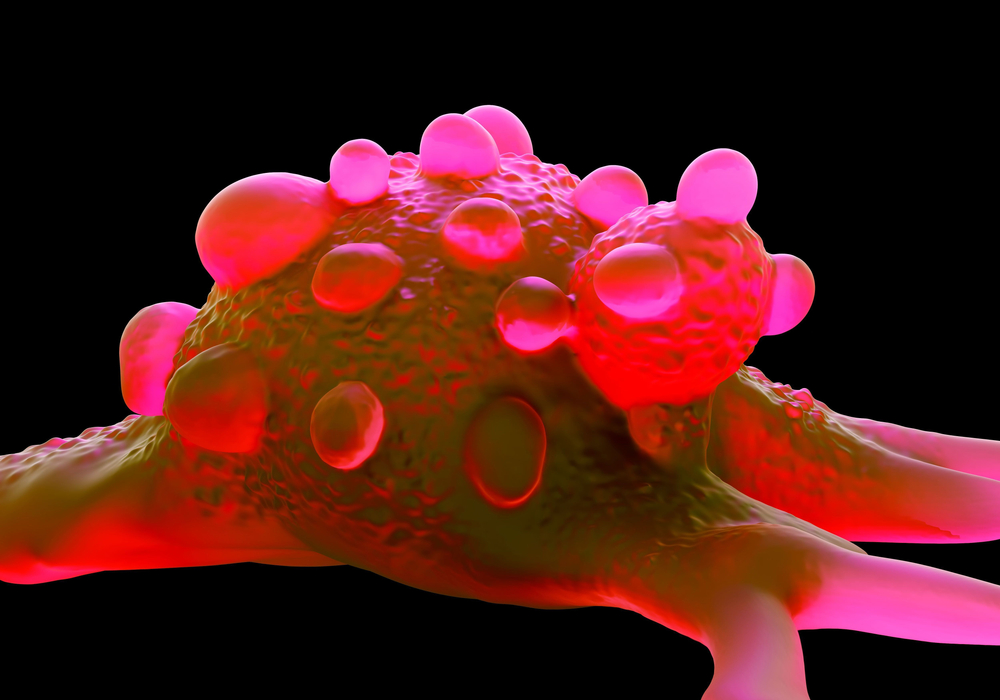UroGen Pharma Ltd. has announced preliminary results of a study to assess the feasibility of home instillation of UGN-102 (mitomycin) for intravesical solution, an investigational therapy in development for primary chemoablation of low-grade, intermediate-risk non-muscle invasive bladder cancer (LG-IR-NMIBC).
In the study, UGN-102 was suitable to administer at home by a visiting nurse under the supervision of a treating physician and resulted in 75% of patients achieving a complete response, defined as no detectable disease 3 months after starting treatment.
“Many bladder cancer patients are elderly and suffer from comorbidities that make frequent office visits for treatment a real burden,” said study investigator David Morris, urologist at Urology Associates PC, Nashville, TN.
“Moving healthcare out of the clinical setting and into a patient’s home would represent a new treatment paradigm for bladder cancer, which may reduce clinic and hospital costs while increasing patient comfort and convenience.”
Complete response
Eight patients were enrolled and treated with UroGen Pharma’s UGN-102 by four investigators. Median age was 75 years (range 55-84). Six patients completed treatment (six doses), and two patients discontinued the study (five doses and four doses, respectively) due to adverse events (AEs) unrelated to treatment.
All eight patients were evaluable for treatment response, and 6 of 8 (75%) achieved a complete response three months after starting treatment. The two patients who discontinued were assessed as non-responders. Treatment-related AEs were mild to moderate in severity (most common: dysuria and fatigue in two patients), and three patients with significant comorbidities had a serious AE, all of which were unrelated to treatment with UGN-102.
Patients, nurses and investigators completed home instillation feasibility questionnaires. These standardized feasibility questionnaires highlighted that all eight patients preferred at-home to in-office treatment, and five of six patients recommended UGN-102 home instillation instead of transurethral resection of bladder tumors (TURBT). Home instillation was reported as feasible for visiting nurses, and three of four investigators considered at-home treatment “not different” than in-office treatment.
“As a urologic oncologist, I feel confident that the home instillation study results, appearing on the heels of our phase 2 program and following the complete enrollment of our pivotal phase 3 ENVISION study for UGN-102, provide us with even more reasons to believe that our novel approach to treating LG-IR-NMIBC has the potential to address genuine unmet needs of patients with bladder cancer,” said Arie Belldegrun, board chair of UroGen Pharma.
The study enrolled patients with recurrent LG-IR-NMIBC who agreed to receive UGN‑102 at home. Six weekly doses of UGN-102 were administered. The first dose was administered on-site by a physician and the five remaining doses were administered at home by a visiting nurse.
Patients were followed for AEs and treatment response was evaluated by visual observation, for cause biopsy, and urine cytology 3 months after treatment initiation. Complete response was defined as the absence of disease by white light cystoscopy, cytology, and histopathology.
“This study is another example of how UroGen continues to advance its mission to pioneer the way urothelial cancers are treated,” says Liz Barrett, president and chief executive officer, UroGen Pharma.
“2023 will be a pivotal year for UroGen as we report on the ATLAS study of UGN-102 and start combinatorial treatments in the Phase 1 study of UGN-301. UroGen is in a strong position to achieve leadership in uro-oncology.”
About LG-IR-NMIBC
Approximately 800,000 people are living with bladder cancer in the U.S., with 80,000 suffering from LG-IR-NMIBC. Patients with LG-IR-NMIBC face a future of recurrence and additional surgeries. Currently, the only primary treatment available is a surgical procedure known as TURBT, which requires anesthesia. Every time TURBT is performed it may impose more burden and serious risks on patients, including pain, bleeding, infection and injury (including perforation).
About UroGen Pharma‘s UGN-102
UGN-102 (mitomycin) for intravesical solution is an investigational drug formulation of mitomycin in phase 3 development for the treatment of LG-IR-NMIBC. Utilizing UroGen’s proprietary RTGel technology, a sustained release, hydrogel-based formulation, UGN-102 is designed to enable longer exposure of bladder tissue to mitomycin, thereby enabling the treatment of tumors by non-surgical means.
UGN-102 is delivered to patients using a standard urinary catheter in an outpatient setting. Assuming positive findings from the ENVISION phase 3 study, UroGen anticipates submitting a New Drug Application (NDA) for UGN-102 in 2024.
If approved, UGN-102 would be the first non-surgical primary therapeutic to treat a subset of bladder cancer characterized by high recurrence rates and multiple surgeries.





